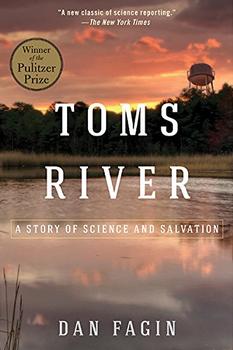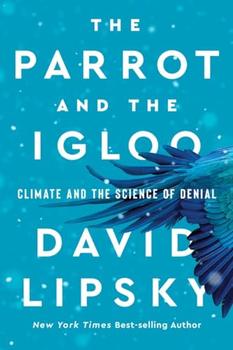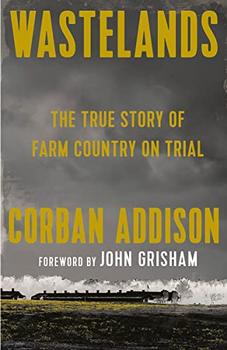Summary | Excerpt | Reviews | Beyond the book | Read-Alikes | Genres & Themes | Author Bio

A Story of Science and Salvation
by Dan FaginWinner of the 2014 Pulitzer Prize for Nonfiction
In Toms River, investigative journalist Dan Fagin tells a story that is at once a detailed, focused case study and also a sweeping history of epidemiology and environmental health. It all begins in the town of Toms River, New Jersey, when the Swiss-owned corporation Ciba-Geigy begins polluting the local water supply in the 1950s and 1960s with the waste from dye and pigment production. In the decades to follow, the town of Toms River develops a cluster of childhood neurological disorders and cancer. Fagin's authoritative narrative, which doesn't overlook a single detail, will intrigue scientists, public health professionals, environmentalists, and any reader who is concerned about the dangers of hazardous waste.
 This tragic story spans multiple decades and features corporations such as Ciba-Geigy, BASF, DuPont, and individuals including children battling leukemia, and alarmed denizens who bring in the likes of Greenpeace and create activist organizations like Ocean County Citizens for Clean Water. Fagin shows how an arduous process that pits ordinary citizens against multinational corporations, can create a slow lobbying method where activists spend years, even decades, to spur entities like the Center for Disease Control and the Environmental Protection Agency to action. The story sparkles most when Fagin gets up close and personal with his subjects, allowing readers to feel the fear and pain of concerned parents, children who fight for their lives, blue-collar factory workers and confounded scientists.
This tragic story spans multiple decades and features corporations such as Ciba-Geigy, BASF, DuPont, and individuals including children battling leukemia, and alarmed denizens who bring in the likes of Greenpeace and create activist organizations like Ocean County Citizens for Clean Water. Fagin shows how an arduous process that pits ordinary citizens against multinational corporations, can create a slow lobbying method where activists spend years, even decades, to spur entities like the Center for Disease Control and the Environmental Protection Agency to action. The story sparkles most when Fagin gets up close and personal with his subjects, allowing readers to feel the fear and pain of concerned parents, children who fight for their lives, blue-collar factory workers and confounded scientists.
Part of the horror of the Toms River story, as Fagin reveals, is how secretive both Ciba-Geigy, which owned Toms River Chemical Corporation, and the Toms River Water Company were about the actual amount of amount of pollution that was being discharged into the waterways and the nearby Atlantic Ocean. Fagin shows how appalling illegal waste disposal practices can be, and also how much bureaucracy and governmental red tape is involved with holding assumed culprits accountable. Beyond shining light on the horrible deaths of numerous children, he also demonstrates how difficult it can be to control and remedy the spread of such illnesses.
Fagin brilliantly draws on history to show how eighteenth and nineteenth century medical speculation accurately linked tobacco and other substances to cancer, and then, tragically, brings readers to fairly recent history where individuals are still suffering from the mismanagement of certain chemicals. The world that Fagin shows is one where medical solutions are to be had, but poor regulation, government oversight, and negligent business practices stand in the way. The ultimate heroes of this story, as Fagin presents them, are the epidemiologists, both amateur and professional, who draw the connections between illness and contamination. Fagin perhaps best shows his concern for the general public through his clear, accessible writing style that nevertheless pays copious attention to the complexity of the issues at hand.
Fagin concludes his thorough investigation not in New Jersey, but in south China, where many modern-day chemical corporations have moved their factories. Unsurprisingly, with this new business has also come a regional increase in childhood cancer. This powerful conclusion is so effective because it situates the trauma that was experienced in Toms River where it can be most useful: in the present day and the near future. In an age when thorough investigative reporting is becoming increasingly rare, Fagin's work demonstrates how journalism can bring clarity to the past and also better the present day.
Map from townmapsusa.com
![]() This review was originally published in The BookBrowse Review in March 2013, and has been updated for the
April 2015 edition.
Click here to go to this issue.
This review was originally published in The BookBrowse Review in March 2013, and has been updated for the
April 2015 edition.
Click here to go to this issue.

If you liked Toms River, try these:

by David Lipsky
Published 2024
The New York Times best-selling author explores how "anti-science" became so virulent in American life—through a history of climate denial and its consequences.

by Corban Addison
Published 2023
As vivid and fast-paced as a thriller, Wastelands takes us into the heart of a legal battle over the future of America's farmland and into the lives of the people who found the courage to fight.
Our wisdom comes from our experience, and our experience comes from our foolishness
Click Here to find out who said this, as well as discovering other famous literary quotes!
Your guide toexceptional books
BookBrowse seeks out and recommends the best in contemporary fiction and nonfiction—books that not only engage and entertain but also deepen our understanding of ourselves and the world around us.